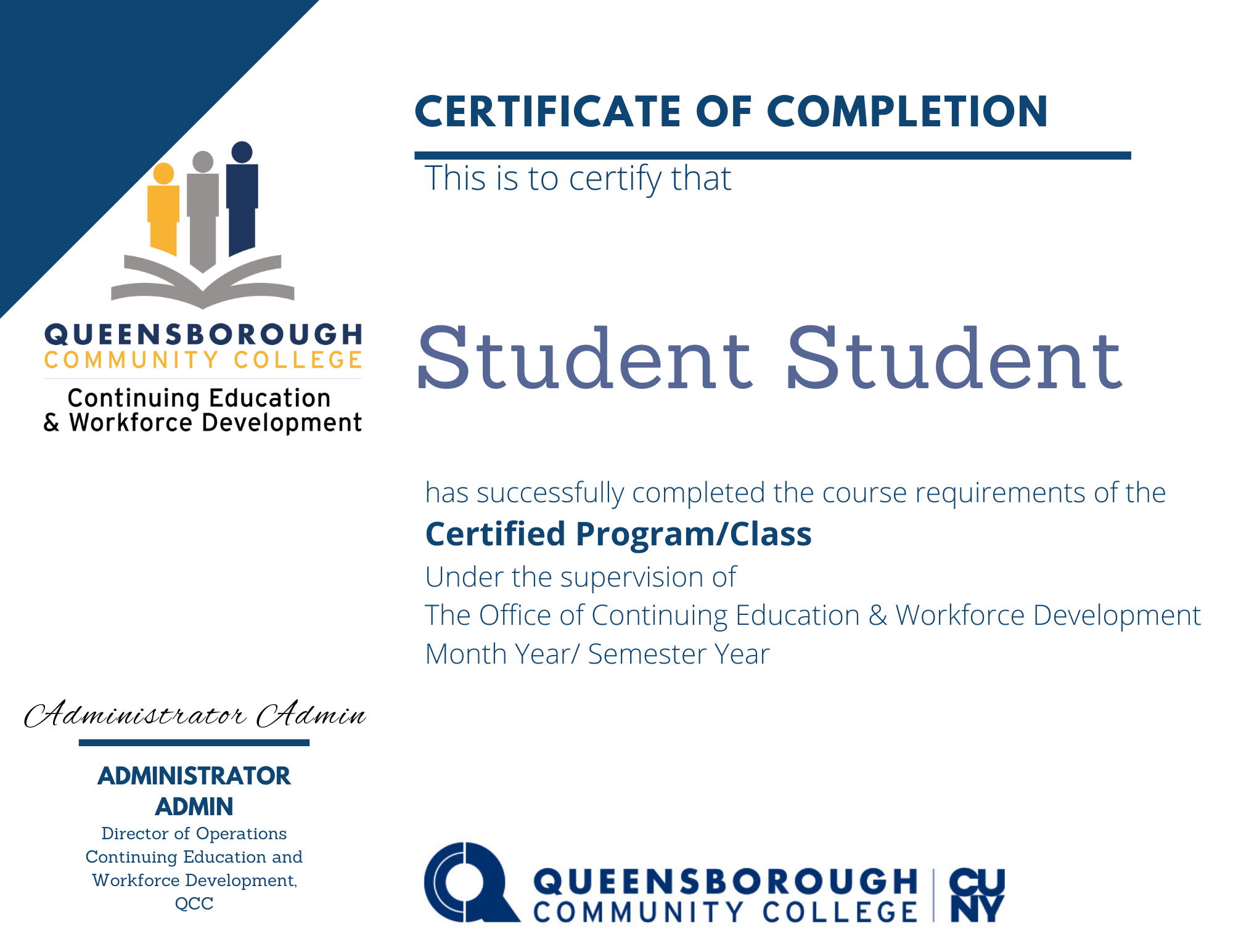 Externship Opportunities
Externship Opportunities
 Flex Payments Available
Flex Payments Available
 Scholarships Available
Scholarships Available
Certified Nursing Assistant (CNA): NYSED Certification

Weekday, Weeknight and Weekend schedules available
Usually
Weekday Schedules:
Monday, Tuesday, Wednesday and Thursday 9:00AM - 1:00PM
Weeknight Schedules:
Tuesday, Wednesday, Thursday
6:00 PM - 10:00 PM
Weekend
Fridays 6pm - 10pm and and Sat/Sun 10am - 2pm
See schedule below for specific days and time
The increase in longevity and the recent changes in the health care system have created an increased need for educated and skilled Nursing Assistants. This program gives students an excellent opportunity to acquire the necessary occupational skills required for C.N.A.s. The CNA profession is ideal for people seeking flexible hours working in nursing homes, hospitals, doctors' offices and health care facilities. The program includes anatomy and physiology, fundamentals of patient care and clinical experience in a residential health care facility. Screen reader support enabled.
Pre-/Co-requisites:
Basic Cardiac Life Support (AHX-100), also known as CPR
(8-hour American Heart Association for health care provider and professional rescuer, which includes adult, child, infant CPR, rescue breathing, and use of AED (Automatic External Defibrillator) course)
High School Diploma or GED/HSE
US Citizenship or Legal Working Permits(Social Security Number).
The NYS Department of Health now requires that Certified Nursing Assistant (CNA) candidates take an additional online training program: the Affirming Care for Older LGBTQIA+ Individuals Training.
This program is available through NYS's Department of Health's Learning Management System. After registering, students can locate the program by conducting a catalog search and typing "Affirming" in the search function. When the course is completed, the registered user will receive a confirmation certificate that should be emailed to the instructor. To locate your certificate log in to your account, got to my courses and look for a drop down menu on the right side of the page and select completed course to see and download your certificate.
This course must be completed prior to the CNA final with no exceptions.
The following is required prior to the start date of clinical externship:
- Copy of physical examination (within the last 6 months);
- Updated immunization data: PPD, MMR, Tdap;
- COVID card (2-3 vaccinations);
- Flu vaccine (current);
- Titer vaccinations: Varicella, HepB; and
- CPR Certification Card
These documents must be presented to the instructor at the time of in-person skills labs on campus, and then again on the start date of the externship.
**Employment opportunities with New York City HealthPlus Hospitals**
Weekend Program
Instructor: Joan Dawidziak
Fridays 6pm - 10pm and Sat/Sun 10am - 2pm
120 Total Hours
74 hours online; 12 clinical skills hours on campus; and a 30-hour externship at Chapin Nursing Home (end of the semester).
Online hours: 09/05/25 - 10/12/25
F- 6:00PM - 10:00PM , Sat and Sun - 10AM -2PM
On-campus hours: 10/17 - 10/19 :F- 6:00PM - 10:00PM , Sat and Sun - 10AM -2PM (for in-person onsite skills labs)
Clinicals at Chapin Home for the Aging Group 1: 10/27 - 10/31/2025: M-F - 8:00am - 2:00pm
Clinicals at Chapin Home for the Aging Group 2: 11/03 - 11/07/2025: M-F - 8:00am - 2:00pm
Online Review: 11/14/2025 - F 6:00PM - 8:00PM
Final: 11/15/25 - Final - Sun 10:00am - 02:00pm, In-Person
Weeknight program
Instructor: Asha Pillai
10/07/25 - 11/13/25: TWTH - 6:00PM - 10:00PM Online
11/17 - 11/20/25: MTWTH - 6:00PM - 10:00PM, In-person onsite Skills labs
12/01 - 12/05/2025: M-F - 8:00am - 2:00pm Clinicals at Chapin Home for the Aging (Group A)
12/08 - 12/12/2025: M-F - 8:00am - 2:00pm Clinicals at Chapin Home for the Aging (Group B)
12/16/2025 -- Online Review for Final -- 6 pm - 8 pm
12/17/2025 - In-Person Final - 6:00pm - 10:00pm
Skip dates: 11/25 - 11/27
Weekday Program
Instructor: Patricia Robinson
Skip Dates: 9/22, 9/23, 9/24, 10/01, 10/02, 10/13, 10/20
09/08/25 - 10/16/25: MTWTH 9AM - 1PM Online
Tues 10/21/25 - Fri. 10/16/25 - Oncampus skills lab
Externship Group 1: Mon 10/27 - Fri. 10/31/25 8AM - 2PM
Externship Group 2: Mon 11/03 - Fri. 11/07/25 8AM - 2PM
Mon 11/10/2025 -- Online Review for Final -- 6 pm - 8 pm
Tues. 11/11/2025 - In-Person Final - 6:00pm - 10:00pm
What you'll learn
-
The program is designed to provide the knowledge and skills to take the NHA certification test at the end of the course.
The program includes anatomy and physiology, fundamentals of patient care and clinical experience in a residential health care facility.
Skills you'll gain
Instructor
Joan Dawidziak
Available Schedules
Sep 5 - Nov 15
Friday, Saturday, Sunday
6:00 PM - 10:00 PM
Hybrid (Online & In-Person)
Sep 8 - Nov 11
Monday, Tuesday, Wednesday, Thursday
9:00 AM - 1:00 PM
Hybrid (Online & In-Person)
Oct 7 - Dec 17
Tuesday, Wednesday, Thursday
6:00 PM - 10:00 PM
Hybrid (Online & In-Person)

Earn a Career Certificate
You will be ready to take the NYS Certified Nursing Assistant exam.

Certified Nursing Assistant
Median Salary
The median salary in the New York metropolitan area is $45,500, in New York State $44,080, and $39,530 in the United States*.
Get StartedAlso called Certified Nurses Aide (CNA), Certified Nursing Assistant (CNA), Nursing Assistant and Patient Care Assistant (PCA)
*Based on U.S. Bureau of Labor Statistics Occupational Employment and Wage Statistics (USBLS OEWS)
📈 Outlook
This career will have large numbers of openings.
🚪 Openings
New job opportunities are very likely in the future.
